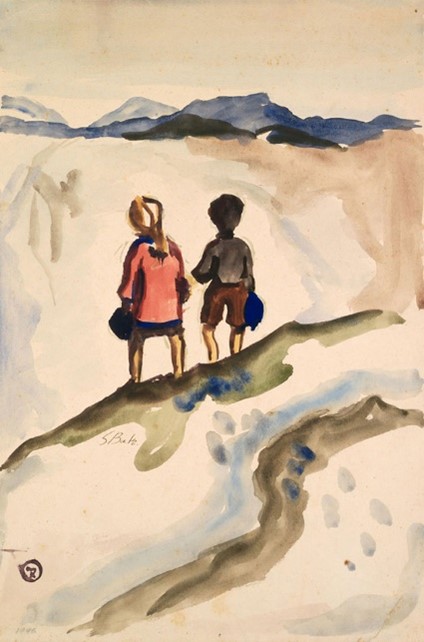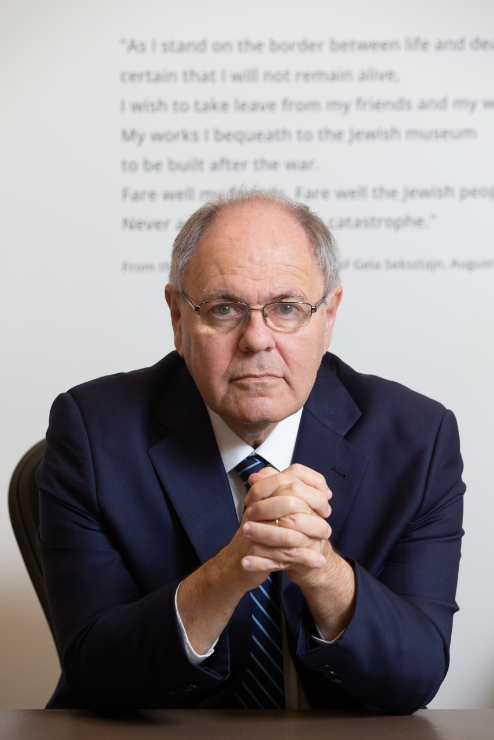Eighty years ago, in May 1945, Nazi Germany finally surrendered to the Allied Forces. As jubilation spread throughout the world, my people, the Jewish people, faced a starkly different reality. For them, the final day of liberation had come too late. The day they had longed for throughout the years of the Holocaust brought only a fleeting sense of relief and celebration, which was quickly overtaken by a profound sense of loss and mourning - as the vast scale of the destruction became heartbreakingly clear, both personally and communally.
Approximately 6 million Jews - more than one-third of world Jewry - had been murdered. The survivors, scattered across Europe, emerged from camps and death marches in severely deteriorated physical and emotional condition. For them, liberation did not mark a clear boundary between darkness and light, but rather a fragile and uncertain threshold. Jewish life after the Shoah would be shaped not only by survival, but by memory - and the challenge of rebuilding following devastation.
One Shoah survivor who exemplified that complex post-Holocaust identity was Samuel (Shmuel) Bak (b. 1933), who was just eight years old when the German Nazis occupied Vilnius (Vilna) in Lithuania in 1941 and established its notorious ghetto.
Even amid the wretched turmoil of ghetto existence, young Samuel found an outlet through art, participating in an art exhibition held in the ghetto in March 1943.
He and his parents were eventually deported to the HKP 562 labor camp, where Samuel was hidden by them and later smuggled out by his father in a sack of sawdust. Just ten days before liberation, in July 1944, his father was murdered.
A year later, in the Landsberg Displaced Persons camp - and still processing the trauma he had endured - Samuel created Children Alone: a painting that captures the fragile threshold of liberation through the emotional world of orphaned Jewish children navigating a daunting postwar reality without family or security.

Children Alone created by Samuel Bak in 1946 in the Landsberg DP camp
This poignant piece depicts two children standing in a snowy landscape, their footprints behind them and distant mountains ahead- symbols of deep suffering already endured and an unknown future yet to come. Cool blue tones link the children to their surroundings, evoking isolation and struggle, while the painting’s radiant light hints perhaps at a fragile hope of renewal.
It occurs to me that the young survivor's delicate brushstrokes express visually and soulfully what the signatories to our foundation document, the Stockholm Declaration (2000), referred to 54 years later when they declared their "commitment to plant the seeds of a better future amidst the soil of a bitter past".
Several of Samuel Bak's works of art are on display at Yad Vashem, where participants in IHRA's Jerusalem Plenary (22-26 June) will be able to view them.
The Plenary will provide an essential opportunity for the IHRA community to gather, share, reflect and plan practically for further concerted action. I encourage you all to register for the Plenary and come to Jerusalem, where I will be very pleased to welcome you.
As we commemorate the conclusion of the Holocaust eight decades ago, we recommit to recall and communicate its compelling legacy. Through the collective efforts of IHRA, its partners, and each of you, we continue to translate remembrance into purposeful action.
